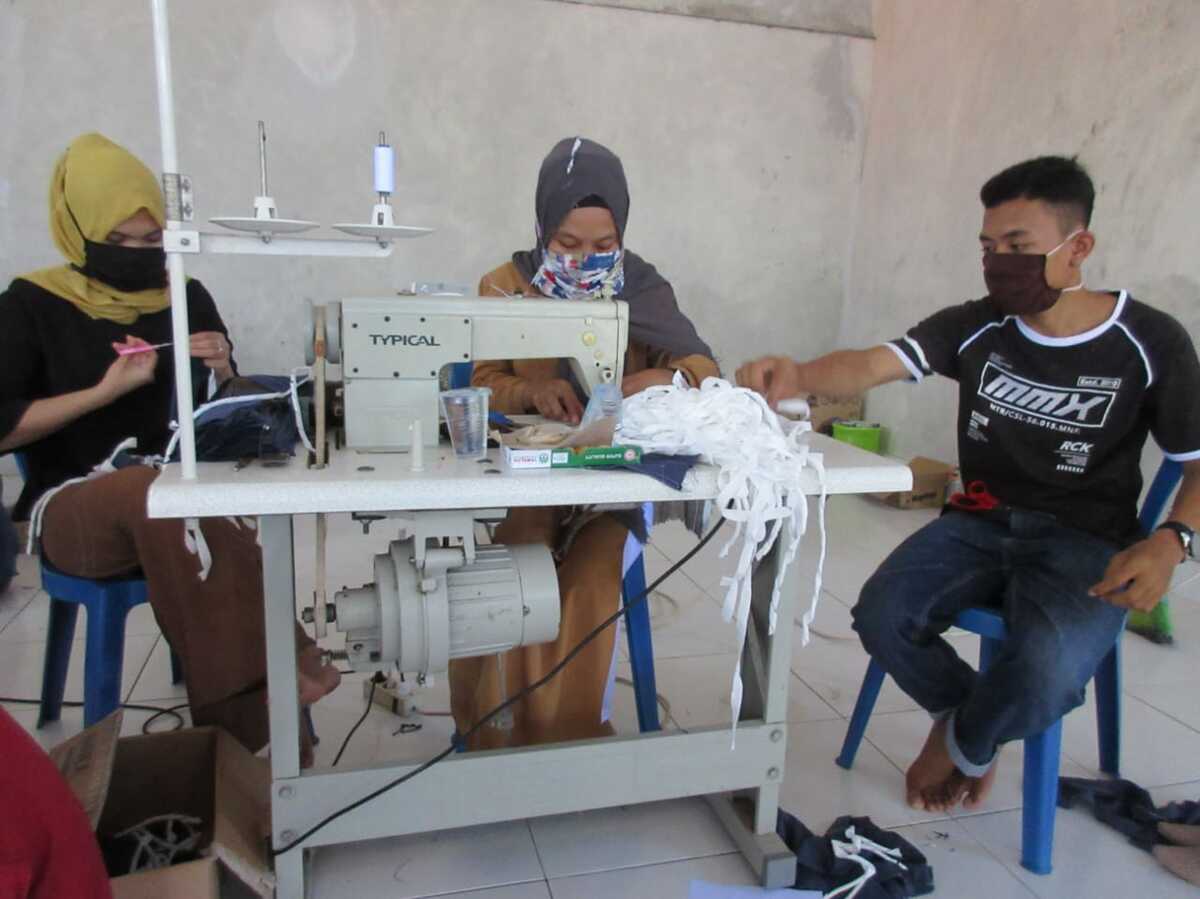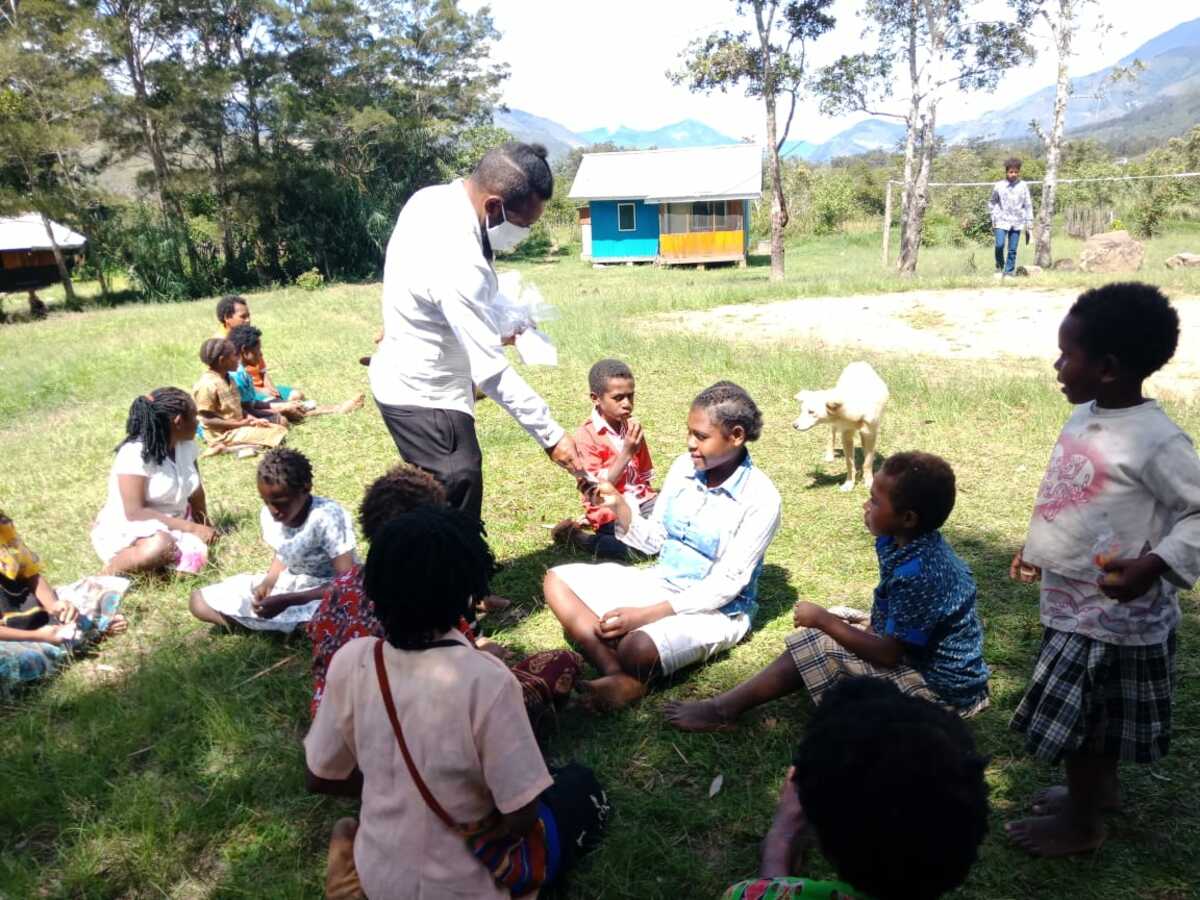WCS teams around the globe helping Communities in the time of COVID-19
July 16, 2020
Afghanistan
Afghanistan is a Least Developed Country and Bamyan is one of its poorest provinces with roughly 60% of the population living in multi-dimensional poverty. At 9,800 feet above sea level, Koshkak-e-Naqshi Village is more remote and poorer than the average, lying in the northern part of Band-e-Amir National Park and adjacent to the newly declared Bamyan Plateau Protected Area. Here, poverty is embedded in a landscape of great natural beauty and rich biodiversity.
COVID-19 and government restrictions to prevent its spread have negatively impacted these isolated communities. Many households depend on remittances from family members working in cities like Kabul or as migrants to neighboring countries, including Pakistan and Iran. With COVID-19, there are no jobs in the cities and also many migrant workers in Iran and Pakistan have been forced back home.
To help villages like Koshkak-e-Naqshi better cope with the negative impact of COVID-19, WCS has implemented a reforestation project where villages are provided with cash for work to plant fuelwood plantations of fast growing trees. The fuelwood plantations will provide villages with a renewable supply of fuelwood for cooking and heating their homes in the winter, and also the poles and timber needed for house construction. This will also reduce the need for households to collect shrubs and bushes from the protected areas, which is having a significant negative impact on the mountain ecosystems and associated wildlife.
Republic of Congo
Nouabalé-Ndoki National Park
In March 2020, before the Republic of Congo was declared in full lockdown, Nouabalé-Ndoki National Park community development teams did an awareness campaign on COVID-19, its symptoms, and prevention measures for about 1,300 inhabitants of villages neighboring the park. Over 20 hand-washing stations were given to the villages of Bomassa, Kabo and Makao.

In May, as soon as lockdown restrictions were lifted, more awareness campaigns were implemented during which an additional 4,000 pair of gloves and 1,500 face masks were donated to Bomassa and Makao Health Centers along with anti-bacterial hand sanitizer and infrared thermometers.
Wildlife Health Program – Brazzaville
In March, when the epidemic started in Congo, The National Laboratory of Brazzaville, a long standing partner of WCS in the surveillance of zoonotic diseases in Congo, became the center of COVID-19 testing for the entire country. WCS, with the help of the US National Institutes of Health, donated 450-plus kits of sampling equipment as well as protection equipment (full body suits, masks and gloves). In May, a second donation was made to the Laboratory to support Congo's testing. It included more full-body suits as well as 700-plus masks and pairs of gloves.
Lac Tele Community Reserve
In March, before restrictions were put in place, the Lac Tele Community Reserve teams supported district representatives of the Ministry of Health in implementing awareness campaigns related to COVID-19. In May, once the restrictions were lifted, the teams donated over 500 masks, 900 pairs of gloves as well as infrared thermometers, anti-bacterial hand sanitizer, and washing stations for the benefits of health centers and the administrators of the reserve.

Ouesso Base
WCS Congo has a number of projects in Northern Congo. For their administrative and logistical needs, all of our staff there rely on our office in Ouesso. WCS supported the Ouesso government's COVID-19 effort by donating over 700 masks and gloves as well as full body suits to the Prefecture for the official disease center.
Bolivia
During this pandemic, the importance of Indigenous rights and capacity for territorial management, which WCS has helped to establish with Lecos, Quechua, Tacana in Bolivia and with many other communities around the world, is clear. Indigenous Peoples have been able to exert territorial control and close their community borders to protect their people, and they are also turning to their varied resources, which are the basis of sustainable livelihoods for Indigenous households.
There are three elements for this resilience:
- Natural resource diversity that largely sustains the financial needs of Indigenous households.
- Biodiversity conservation and Indigenous territorial management that support a sustainable Tacana economy.
- Reciprocal relations that strengthen productive processes and cooperative ties between families.

Fiji
Indonesia
Between March and June 2020, WCS offices in Indonesia distributed food and non-food packages to local communities that were economically affected by the pandemic.
At the team's headquarters in Bogor, WCS donated 125 food parcels to the Red Cross hospital as part of WCS’s 125th Anniversary celebration and in recognition of health workers on the frontline of fighting against the pandemic.
WCS in West Nusa Tenggara (NTB), in collaboration with local youth association, undertook an initiative to produce and distribute 3,000 face masks to the community in Tanjung Luar
In Ternate, North Maluku, WCS delivered 125 food parcels to four orphanages.
With Gunung Leuser National Park authority, WCS distributed 50 staple food packages to local community and tourist guides in GLNP area in Bukit Lawang, North Sumatra.
WCS also donated 100 face masks through Papua Working Group (Pokja Papua) to the local community.
Madagascar
In Madagascar, tourism has collapsed. Prices for fish, octopus, and calamari have plummeted to less than half of their normal prices, leaving fishers struggling to support themselves. To meet basic needs, writes WCS's Emily Darling for PBS Nature, WCS staff are delivering masks and soap to vulnerable communities, sharing information about the pandemic and the links between human health and the environment.
Malaysia
The WCS Malaysia team was asked to help with the government supply mission to deliver food rations to the Indigenous Orang Asli.
Mesoamerica
We are working with local communities on conservation action, but also in providing basic goods and supplies. Pictured is food distribution in Paso Caballos, Guatemala, with the Q'eqchí community, which is located at a key access point to Laguna del Tigre National Park and surrounding forest concessions.
Mongolia
WCS Mongolia has been implementing the South Gobi Cashmere (SGC) project among 131 herder families in South Gobi province over the last four years. The main goal of the project is to develop a suitable value chain model through engaging communities in sustainable rangeland and livestock management practices and aiming to improve habitats of wild ungulates
About 90% of each herder household's income comes once a year from their cashmere sale.Because COVID-19 hit hard in Europe, the cashmere luxury fashion-brand company partnering SGC was unable to purchase cashmere from the cooperative herders in the spring of 2020. At same time, government restrictions to reduce COVID-19's spread prevented the cashmere sale to Chinese traders, who are the main importers of cashmere produced in Mongolia.
The SGC team worked hard to extend their network and find potential cashmere buyers during this difficult time. With the team's facilitation, a London-based company agreed to purchase cashmere and paid a 5% incentive payment on top of the market price. After the COVID-19 situation has calmed and borders are opened, a local processing factory will ship the cashmere sourced from the cooperative herders to the company.
Papua New Guinea
United States
WCS's Bronx Zoo served as a staging ground for New York's pandemic response.
The zoo also provided space for nearby Montefiore Health System to do COVID-19 testing.
In Fort Collins, Colorado, our team donated N95 masks to the city for first responders and health professionals.

We need your help
Your tax-deductible gift supports cutting-edge exhibits, first-class animal care, and in-depth research to help threatened wildlife survive and thrive.
WCS News & Updates
Sign up for WCS news and we'll keep you updated on the latest from the field.
Sign Up for Email Updates
Get news from the field and learn about ways you can help Earth’s most threatened species.









